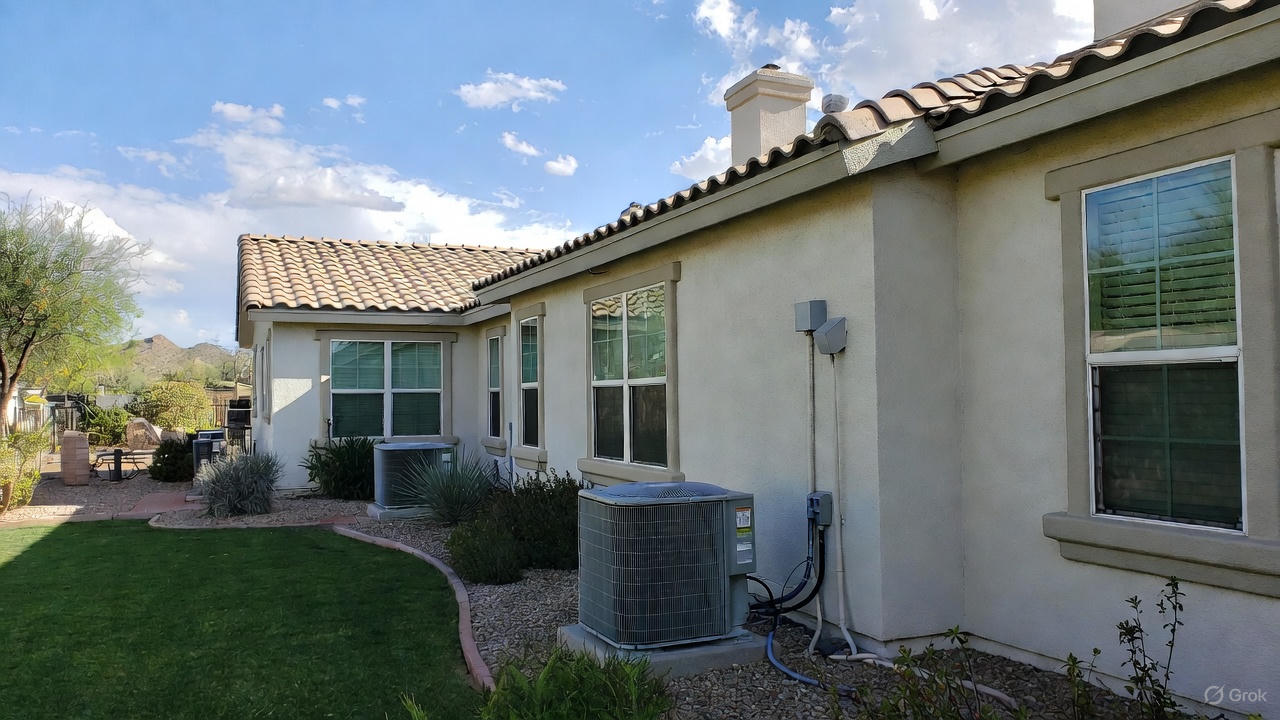If you’ve ever wondered why your air conditioner feels a little less chilly during a Mesa summer scorcher, or you’ve heard a tech mention “low on Freon,” you’re not alone. We get calls all the time from homeowners and business owners who just want their house or office to feel comfortable again—fast. The truth is, what most people call “Freon” is really the refrigerant that makes home air conditioning possible, and things have changed a lot over the years.
So, What Exactly Is Freon Anyway?
You know how your AC can turn a 115-degree day into something bearable? That magic happens because of refrigerant—the special fluid that cycles through your system, absorbing heat inside your home and dumping it outside. “Freon” started as a brand name (kind of like Kleenex for tissues) that DuPont used back in the 1930s for their refrigerants. Over time, everyone just started calling any AC coolant “Freon,” even though today it’s usually something completely different.
Here’s the thing: refrigerant doesn’t really get “used up” like gas in your car. In a properly sealed system, the same charge lasts the entire life of the unit. When someone says you need more Freon, what they usually mean is there’s a leak somewhere, and the system is low.
How Refrigerant Keeps Your House Cool in Mesa’s Heat
Picture this: it’s July, the sun is relentless, and your AC kicks on. The refrigerant starts as a low-pressure gas in the evaporator coil inside your home. It absorbs heat from the air blowing across that coil—pulling the warmth right out of your living room. Then the compressor squeezes it into a hot, high-pressure gas and pushes it outside to the condenser coil, where a fan blows off all that heat. The refrigerant cools down, turns back into a liquid, and heads inside to do it all over again.
That cycle is why even on the hottest Mesa days your home can stay in the low 70s. Pretty neat, right?
The Big Switch: From R-22 to R-410A (and What’s Happening Now)
Things haven’t stayed the same forever. Back in the day, almost every air conditioner used R-22—real Freon. But scientists discovered it was hurting the ozone layer, so the EPA started phasing it out years ago.
Why the Old “Freon” (R-22) Got Phased Out
Production of new R-22 stopped completely in 2020. Any that’s left is reclaimed or from old stockpiles, which means it’s expensive—sometimes several hundred dollars a pound after labor. If your system is pre-2010, there’s a good chance it still runs on R-22.
Where Things Stand with R-410A in Late 2025
After R-22 left the scene, R-410A (often sold as Puron) became the standard. It’s safer for the ozone but still has a pretty high global warming potential. Because of new EPA rules under the AIM Act, manufacturers could no longer make new R-410A equipment starting January 1, 2025. New systems now use lower-GWP options like R-454B or R-32.[1]
Good news: if you already have an R-410A system, you can keep using it and get it serviced for years to come. Supplies of R-410A are still available for repairs—just like R-22 was after its phase-out.
Signs Your Air Conditioner Might Be Low on Refrigerant
We see these symptoms all the time here in Mesa, especially when systems are pushing hard through triple-digit heat. Watch for:
- Warm air blowing from vents even though the unit runs constantly
- Ice or frost on the indoor coil or copper lines (yes, low refrigerant can actually cause freezing)
- Hissing or bubbling noises near the indoor or outdoor unit
- Higher-than-normal electric bills because the system works harder to cool
- The outdoor unit runs but the house never quite gets comfortable
If a couple of these sound familiar, don’t wait—give us a call before a small leak turns into a big problem.
Common Myths About “Adding Freon”
Let’s clear up a few things we hear every summer:
- Myth: Air conditioners normally use up refrigerant over time.
Reality: No—they’re sealed systems. You only lose it if there’s a leak. - Myth: Just topping off the Freon fixes everything forever.
Reality: We have to find and repair the leak first, or you’ll be low again soon. - Myth: All refrigerants are interchangeable.
Reality: R-22 and R-410A are completely different pressures and chemistries—mixing them ruins equipment.
R-22 vs. R-410A: Quick Comparison Table
| Feature | R-22 (Old “Freon”) | R-410A (Current Standard) |
|---|---|---|
| Installed in systems | Before ~2010 | 2010 through 2024 |
| Ozone depletion | Yes—major reason for phase-out | None |
| Global warming potential | Moderate | High (now being phased down) |
| Typical recharge cost (2025) | $400+ per pound (very limited supply) | $80–$150 per pound (still reasonable) |
| Still serviceable? | Yes, but getting expensive | Yes, for many years to come |
What Should Mesa Homeowners and Businesses Do Next?
Honestly, most folks don’t need to rush out and replace a working system. But here’s our straightforward advice:
- Schedule a maintenance tune-up—catching small leaks early saves thousands.
- If your system is over 12–15 years old and needs a costly refrigerant recharge, get a quote for replacement. New high-efficiency units with the latest refrigerants can cut your electric bill noticeably.
- Business owners with multiple units: let’s talk about a phased upgrade plan so you’re not stuck with skyrocketing service costs down the road.
Living in Mesa means we rely on our air conditioning more than most places. The last thing anyone wants is to be without cool air when it’s 118° outside.
Ready for Cooler Air Without the Worry?
We’ve been keeping Mesa-area homes and businesses comfortable for years, and we’re ready to help you figure out exactly what your system needs—no pressure, no upsell, just honest advice. Whether it’s a quick recharge, leak repair, or time to start thinking about a new high-efficiency system, give us a call at 480-207-1239 or schedule online here. We’ll have you cooling again in no time.
Sources
- U.S. Environmental Protection Agency – Refrigerant Transition and Recovery Programs
https://www.epa.gov/ozone-layer-protection/refrigerant-transition-and-recovery-certification-programs - U.S. EPA – Homeowners and Consumers FAQ on Refrigerants
https://www.epa.gov/ods-phaseout/homeowners-and-consumers-frequently-asked-questions - American Innovation and Manufacturing (AIM) Act Overview
https://www.epa.gov/climate-hfcs-reduction




